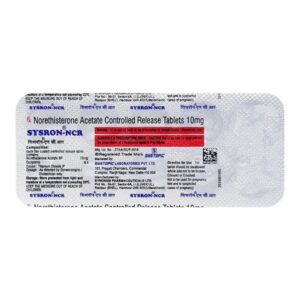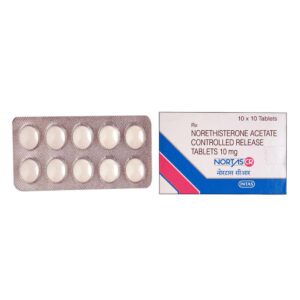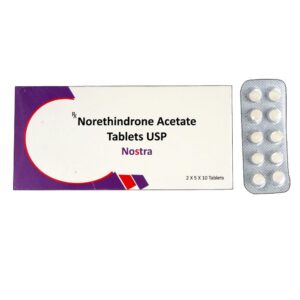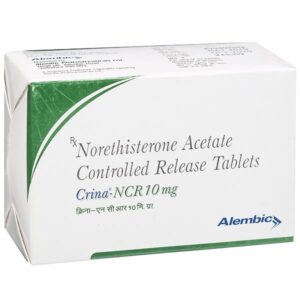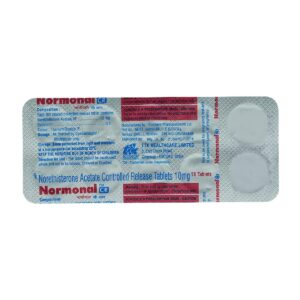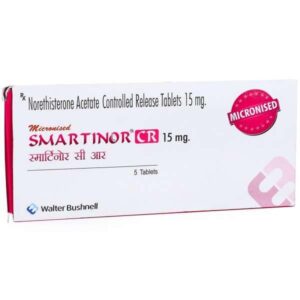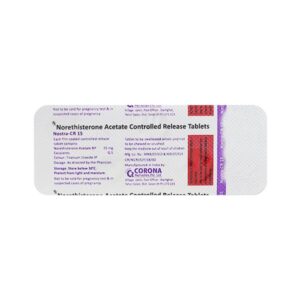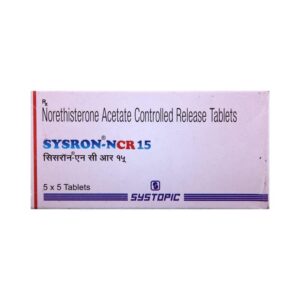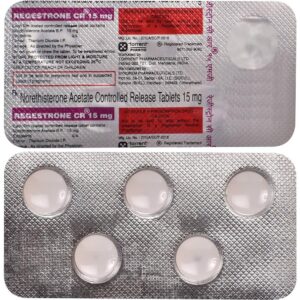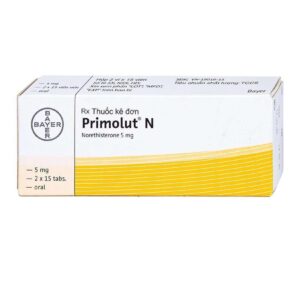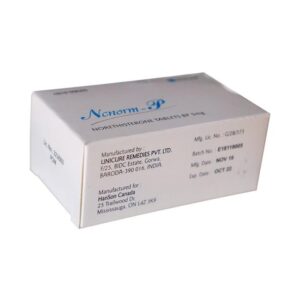NORETHISTERONE
NORETHISTERONE: Norethisterone, also known as norethindrone, is a synthetic hormone that belongs to the class of medications called progestins. It is commonly used in the treatment of various gynecological conditions and as a component of hormonal contraception.
The primary use of norethisterone is to regulate menstrual cycles and treat conditions related to hormonal imbalances such as heavy or irregular periods, endometriosis, and premenstrual syndrome (PMS). It can also be used to delay menstruation for special occasions or events. In addition, it is an active ingredient in some forms of hormonal contraception, including the progestin-only pill.
Norethisterone functions by mimicking the actions of the natural hormone progesterone in the body. It works by modifying the lining of the uterus and decreasing the production of certain hormones involved in the menstrual cycle. By doing so, norethisterone can help regulate menstruation, reduce menstrual pain, and prevent abnormal growth of the uterine lining.
The dosage of norethisterone depends on the specific condition being treated and the individual patient’s response. It is available in various forms, including tablets and injections. For menstrual cycle regulation, a typical starting dose is 5 mg taken orally three times a day for 10-14 days. Higher doses or longer durations of treatment may be necessary for certain conditions.
As with any medication, norethisterone may cause side effects. Some common side effects include nausea, bloating, breast tenderness, headaches, dizziness, and changes in mood. These effects are usually temporary and resolve on their own. Less common but more serious side effects include blood clots, liver problems, and allergic reactions. It is important to consult a healthcare professional if any concerning side effects occur.
Norethisterone should not be used in certain medical conditions, such as liver disease, certain types of cancer, or a history of blood clots. It can also interact with other medications, including some antibiotics and anticonvulsants, so it is essential to inform the healthcare provider about all current medications.
Overall, norethisterone is a valuable medication used for various gynecological conditions and as a component of hormonal contraception. However, it is important to use it under the guidance and prescription of a healthcare professional to ensure safety and effectiveness.

